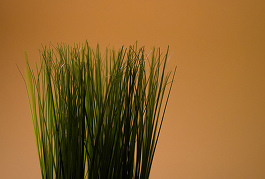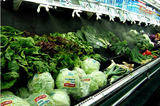If you want to buy environmentally friendly products when you’re out shopping, you’ll find plenty of options these days. The trouble is that “green,” like “organic,” is considered a very loose concept by lots of manufacturers. The Chicago Tribune put together a list of ways you can spot the fakes on your next shopping trip. Here’s an easy rule of thumb: the words eco, earth, green, friendly, gentle and kind are all frequently used to give the impression of being environmentally friendly, but they’re essentially meaningless marketing words. [More]
environment
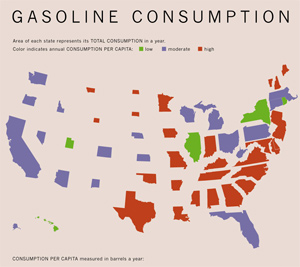
What State Uses The Most Gas?
Is your state the gassiest? This graph over at Infrastructurist compares how much each gas each state uses per person. Green is low use, blue is moderate, and red is high. What’s interesting is when you look at each state’s fuel use per capita, “High-use states like New York actually have low per-capita usage, while states like Alabama, Iowa, Mississippi, Missouri, New Hampshire, and North Dakota — all states with smaller populations and large distances required for drivers — have higher than average consumption.” [More]

Walmart Putting Pressure On Suppliers To Go Green
In an effort to de-taint its public image (and cut long-term overhead costs), mega-retailer Walmart has been going “green” for over a decade with eco-friendly changes to its operation. And yesterday the company announced it is asking its suppliers to help them in their latest initiative to reduce greenhouse gas emissions by 20 million metric tons in the next five years. [More]
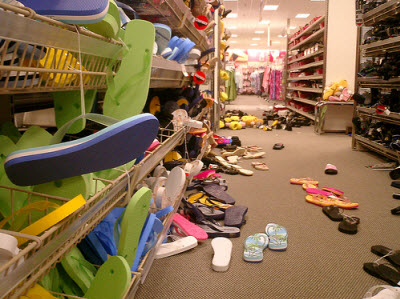
Target Stops Selling Farmed Salmon. Also, Target Apparently Sells Salmon.
Target has announced that, due to love of the planet, they have decided to stop selling farmed salmon. Salmon farms, according to Target’s press release, produce “pollution, chemicals, parasites and non-native farmed fish that escape from salmon farms all affect the natural habitat and the native salmon in the surrounding areas.” They’re switching to “sustainable” wild salmon. [More]

TerraSkin, The Paper Made From Rocks
Terraskin is a paper that is made entirely from rocks and resin. Its production uses neither trees nor water. The rock mainly comes from construction waste material. The resin is mainly post-industrial recycled material. [More]
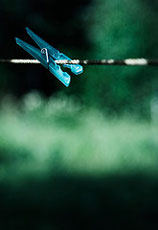
Consumers: Adopting Greener Behaviors Or Just Cheap?
This month, Consumer Reports is publishing the results of a survey of American adults asking about their adoption of “green” behaviors. Interesting, right? However, we can’t help but wonder whether some of these behaviors are more about saving money than saving the planet.
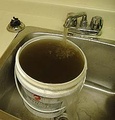
U.S. Neglecting Clean Water Laws, To Scary Results
Today’s lesson in who Is trying to kill you takes us to municipal water supplies, where violations of the nation’s Clean Water Act have now become rampant. According to a harrowing report by the New York Times, polluters have violated the act over a half million times in the last five years, dumping heavy metals (lead, nickel) and other dangerous chemicals into the water, usually without recourse.

Why Store Receipts Keep Getting Longer and Longer
Ever run to the drug store for a tube of toothpaste and find that your meager purchase results in a receipt the length of War and Peace? Two-foot long receipts are increasingly common these days, as retailers embrace technologies allowing them to microtarget customers. The colossal waste of paper comes at a cost, not only in felled trees but on man hours spent on changing tape and fixing broken printers.

Study: Candles May Contribute To Indoor Air Pollution
You may want to think twice about covering up that stench in the bathroom by lighting up 25 votives. A new study by researchers at South Carolina State University found that “paraffin-based candles — the most popular kind — emitted toxic chemicals like toluene and benzene.”
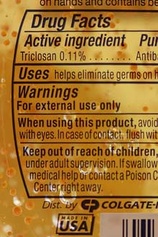
Attack of the Antibacterial Soaps!
Triclosan, a chemical widely used in antibacterial soaps, is turning up in dolphins. The agent gets into oceans after traveling from, for instance, your bathroom sink into wastewater streams. Though 90 to 98 percent of the chemical is broken down before it reaches fresh water, even the small percentage that remains becomes significant due to antibacterial soaps’ wide use.
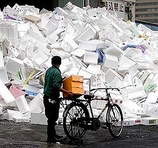
Scientists Say Consumerism Killing the Planet
The New Scientist has an editorial this week arguing that consumerism is “eating the future.” Author Andy Coghlan sees the modern environmental crisis as the result of a Darwinian struggle: “Not only are [humans] simply doing what all creatures do: we’re doing it better.”
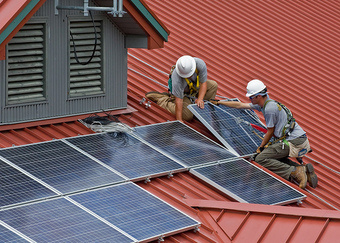
Got Solar Panels? Utility Wants To Charge You For Not Using Their Energy
Midwest utility Xcel Energy wants to charge anyone using solar panels a monthly fee for sustainably generating their own energy. According to company spokesman Tom Henley, “We just don’t think it’s fair that customers that don’t have solar panels on their homes should subsidize these solar panel customers any further.” Huh?
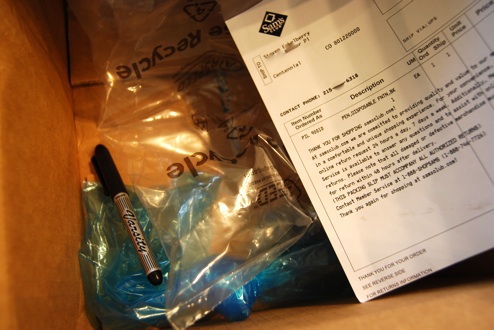
Sam's Club Includes Free Giant Box With Each Pen Sold
Reader Steven bought some cheap fountain pens from Sam’s Club. Perhaps unaccustomed to such a small purchase, Sam’s Club had trouble finding the appropriate packaging.

Can Branding Sex Up Tap Water?
City officials in Venice have come up with a novel plan for getting consumers to break the bottled water habit: they’ve branded their tap water Acqua Veritas and created a slick ad campaign around it.
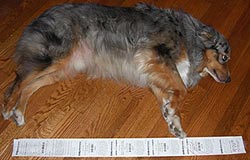
Toothpaste Purchase Results In 3-foot Long Receipt
CVS asks: How about some dead trees and a bunch of ads with that purchase? Not in so many words, of course: that would actually give shoppers a choice.
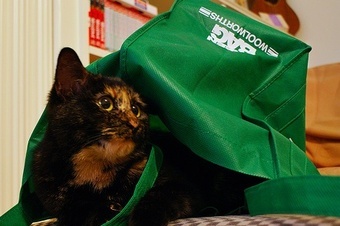
Plastics Industry: Reusable Bags Are Bacteria Traps That Will Kill You And Your Family
Those green reusable bags that are all the rage? The plastics industry this week released a study concluding that they are nothing more than bacterial totes, which might be scary if it were true. BarfBlog looked at the study’s methodology and then ate through its main points.


